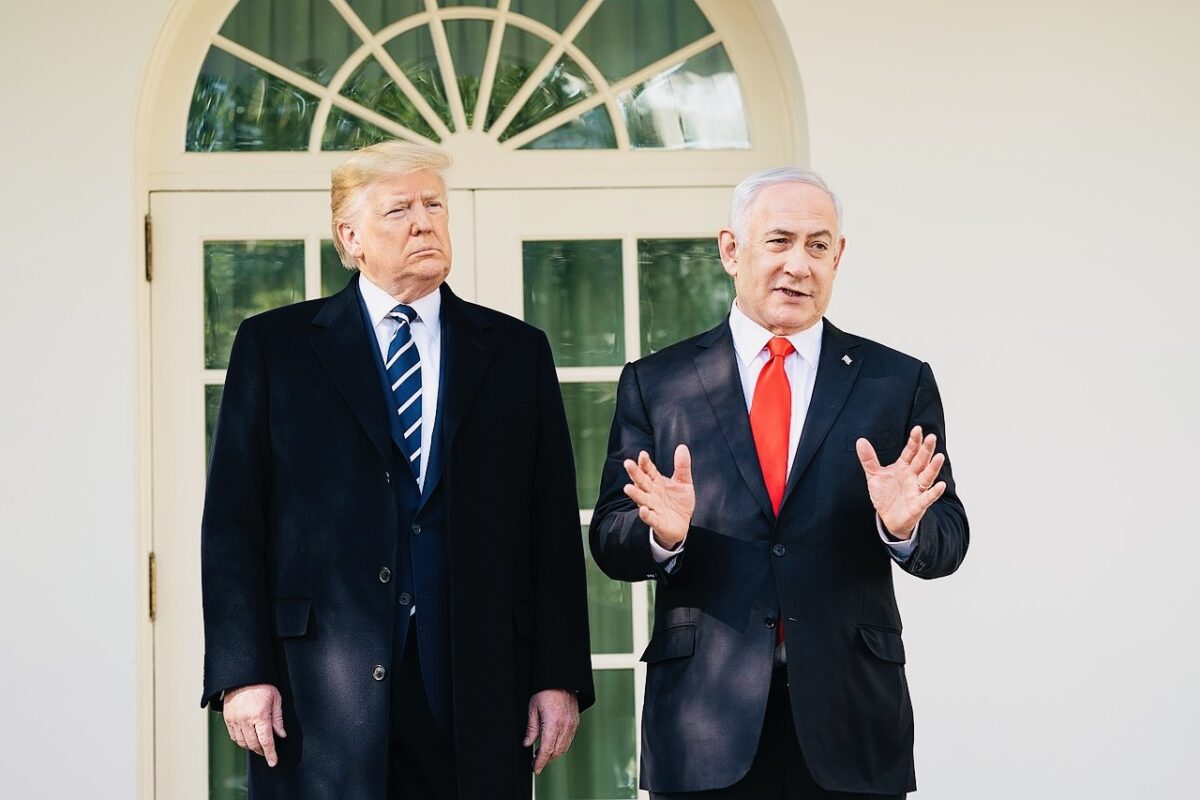Donald Trump has bared his soul in a series of remarkably candid interviews with the Israeli journalist Barak Ravid. Sounding a lot like a spurned lover, the ex-U.S. president blasted Benjamin Netanyahu, the former Israeli prime minister, with whom he forged a close political relationship.
Still smarting from his resounding defeat at the hands of Joe Biden in the last presidential election, Trump accused Netanyahu of disloyalty and claimed he was not interested in making peace with the Palestinians.
Trump, having been angered by Netanyahu’s congratulatory message to Biden after his election victory, declared, “I haven’t spoken to (Netanyahu) since. Fuck him.”
Trump lives in an alternate universe.
Still stubbornly refusing to concede defeat, he myopically believes the election was rigged and stolen from him. Acting on this false and preposterous belief, he took his case to state courts, only to be consistently rebuffed. He then encouraged his followers, some of whom were white supremacists, to storm the U.S. Capitol in an ugly and unprecedented attempt to invalidate the outcome of a democratic election.
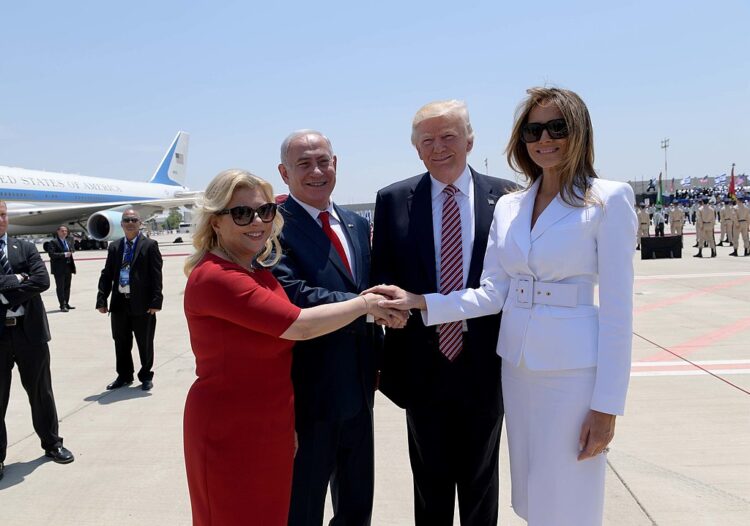
Turning to the Middle East, Trump told Ravid he assumed that Israel sought a peace agreement with the Palestinians. Much to his surprise, he said, Netanyahu showed no real interest in reaching a settlement with the Palestinian Authority, which has governed part of the West Bank since the Oslo peace process.
How should we react to Trump’s verbal barrage?
Trump’s self-serving comments regarding the election can be safely classified under the broad heading of propaganda. And his angry remarks about Netanyahu’s response to it should be taken with a large lump of salt.
Trump erroneously claims that Netanyahu was too hasty when he contacted Biden following the election. “The first person to congratulate Biden was Bibi,” he said, referring to Netanyahu’s nickname. “Bibi could have stayed quiet. I was personally disappointed in him. He made a terrible mistake.”
Laboring under a grand illusion,Trump thinks he was betrayed by Netanyahu. “Nobody did more for Bibi,” he said, speaking about himself.
Trump was implicitly referring to his recognition of Jerusalem as Israel’s capital, his decision to move the U.S. embassy in Tel Aviv to Jerusalem, his statement recognizing Israel’s sovereignty over the disputed Golan Heights, his role in arranging normalization agreements with the United Arab Emirates, Bahrain, Sudan and Morocco, and his unilateral withdrawal from the Iran nuclear accord.
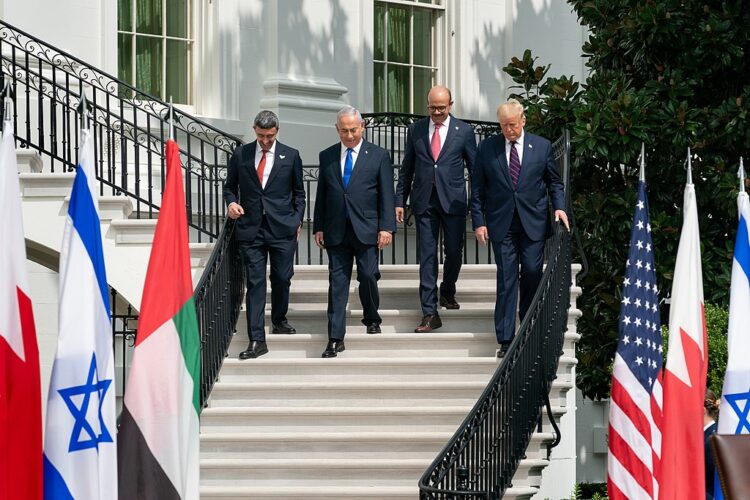
And lest it be forgotten, the United States, in a historic shift in policy, proclaimed that “the establishment of Israeli civilian settlements in the West Bank is not, per se, inconsistent with international law.”
Trump’s latest comments with respect to the election are nothing but rhetoric.
Netanyahu acted completely appropriately by congratulating Biden, the president-elect. How could he not? The United States is Israel’s chief ally and patron.
Contrary to Trump’s specious claim, Netanyahu was not the first Western leader to offer his best wishes to Biden. Netanyahu waited more than 12 hours before issuing a pro forma statement on his Twitter account regarding Biden’s victory.
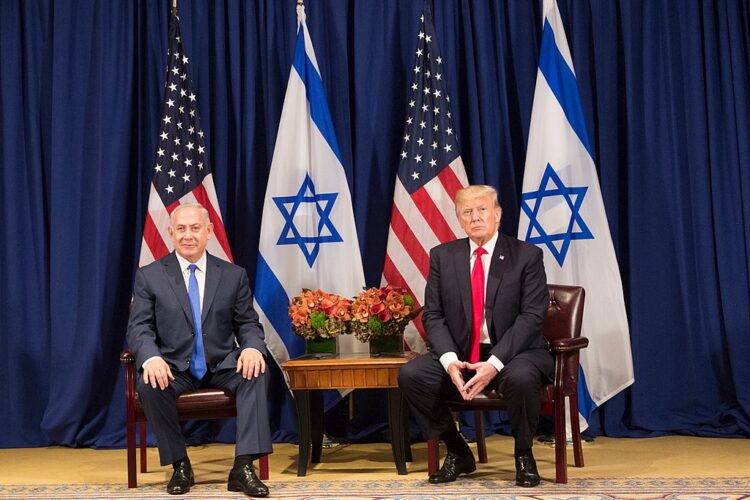
And in another tweet shortly afterward, Netanyahu thanked Trump for “the friendship you have shown the state of Israel and me personally, for recognizing Jerusalem and the Golan, for standing up to Iran, for the historic peace accords, and for bringing the American-Israeli alliance to unprecedented heights.”
Trump, a sore loser, fails to understand that Netanyahu was merely performing his prime ministerial duty when he congratulated Biden, the incoming president. And Trump seems to have forgotten that Netanyahu, in his second tweet, paid due respect to his pro-Israel decisions.
Netanyahu, who most certainly hoped that Trump would win a second term, was under no obligation to validate Trump’s conspiracy theory concerning the U.S. election. Netanyahu’s sole duty was to prepare himself and Israel for a new American administration.
Trump’s comments regarding Netanyahu’s lukewarm attitude toward peace with the Palestinians were far more realistic and substantive than his misguided mutterings about Netanyahu’s so-called disloyalty.
Upon becoming president in 2017, Trump says, he asked Netanyahu to impose a construction freeze in the West Bank so as to facilitate peace talks with the Palestinian Authority. According to Trump, Netanyahu demurred.
“Bibi did not want to make a deal,” says Trump. “I don’t think Bibi would have ever made a deal,” he adds. “That’s my opinion.”
After meeting Palestinian Authority President Mahmoud Abbas, Trump told Netanyahu that an agreement seemed promising. Netanyahu, however, was hesitant, Trump says.
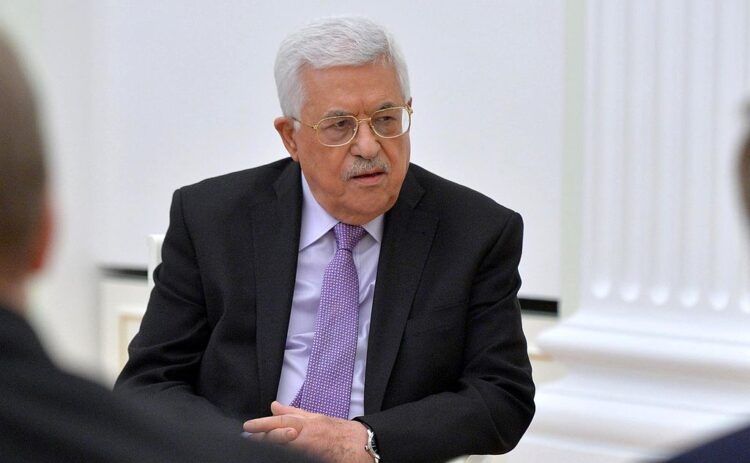
“Well, let’s think about it,” Netanyahu replied in Trump’s version of events. “Let’s not move too fast.” Netanyahu’s response prompted Trump to say, “Wait a minute, you don’t want a deal. And he said, ‘Well, uh, uh, uh.’ I don’t think Bibi ever wanted to make a deal. I had thought the Palestinians were impossible, and the Israelis would do anything to make peace and a deal. I found that not to be true.”
Reiterating his dim view of Netanyahu’s aversion to peace, Trump went on to say tellingly, “I don’t think Bibi ever wanted to make peace. I think he just tapped us along … No, no, we want to, we want to … But I think Bibi did not want to make peace. Never did.”
Trump claims he dissuaded Netanyahu from annexing the Jordan Valley. “I got angry and I stopped it, because that was really going too far,” he says, conveniently forgetting that his one-sided, misbegotten peace plan called for annexing this portion of the Wrist Bank.
Trump’s frank revelations about Netanyahu’s reluctance to engage the Palestinians in peace talks come as no surprise to most observers.
After the collapse of Israel’s direct negotiations with the Palestinians in 2014, Netanyahu gradually distanced himself from a two-state solution, to which he had paid only lip service, and expanded Israeli settlements in the West Bank.
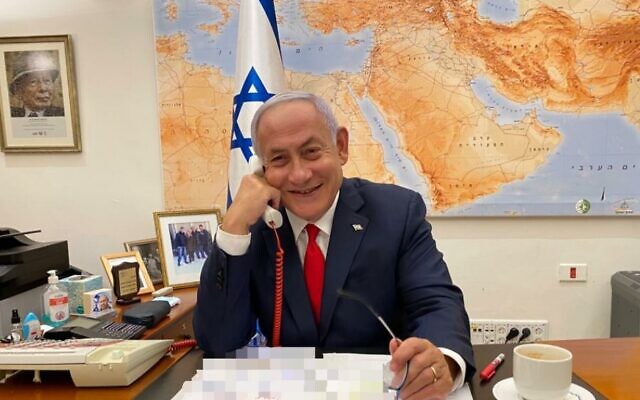
At best, Netanyahu was ready to offer the Palestinian Authority little more than crumbs — limited autonomy in segments of the West Bank. He was not prepared to give up Israel’s occupation and countenance the establishment of an independent Palestinian state. This remains his position today.
Trump, out of sheer frustration with Netanyahu’s refusal to validate his blatantly jaundiced account of the U.S. election, has performed a valuable service. He has told us the unvarnished truth about Netanyahu’s rejectionist view of peace with the Palestinians.
Historians will surely be grateful for his candor.
